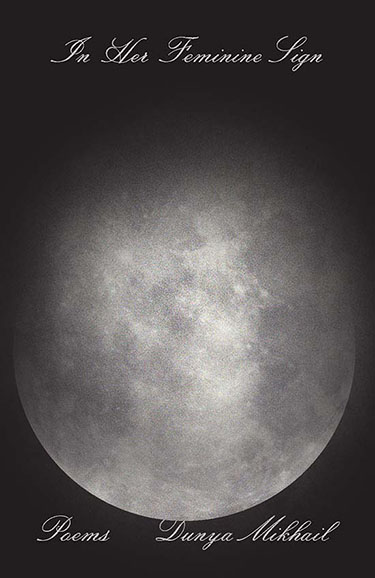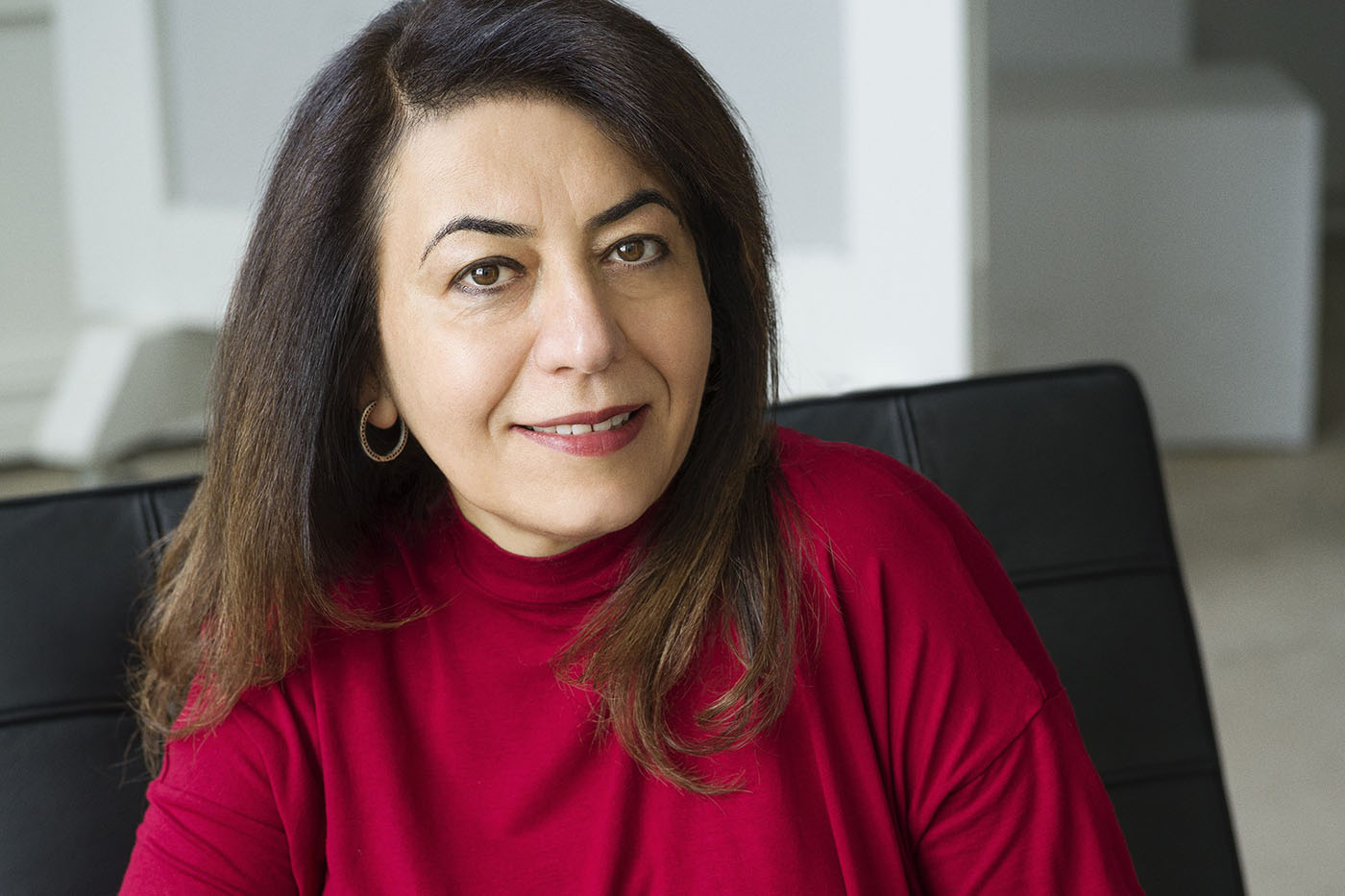Iraqi American poet Dunya Mikhail presents two poems from her collection In Her Feminine Sign, ‘The Stranger in Her Feminine Sign” and “My Poem Will Not Save You.”
Dunya Mikhail

The Stranger in Her Feminine Sign
Everything has gender
in Arabic:
History is male.
Fiction is female.
Dream is male.
Wish is female.
Feminine words are followed
by a circle with two dots over it.
They call this symbol “the tied circle,”
knotted with wishes
which come true only when forgotten
or replaced by the wishes of others.
In the town of tied wishes
people feel great anticipation
because a stranger will arrive
today in her feminine sign.
Someone says he saw her
two dots glittering,
refuting another’s vision
of a cat’s eyes hunting in darkness.
So scary, he says, how the moon
hides in her red circle.
Everyone is busy today
listing wishes on pieces
of paper they’ll give to the wind.
When the stranger finds them
on her way, she’ll collect them
and adorn them to her circle,
tossing off some old wishes
to make space for the new.
They say the dropped ones
will come true.
The stranger’s lateness
worries those who wait.
Someone says she’s searching
for a word to complete
a special sentence,
the gift she’ll bring to town.
Another wonders if she seeks
a verb or a noun,
and offers to find her.
A third warns that the stranger
may turn him, with one touch,
into a flower that blooms
for only an instant
before it withers and dies,
her circle throbbing with songs
that cause sadness and elation
and something so obscure
no one has a name for it.
Will she complete a verb
or a noun phrase—or go solo,
a word complete on its own?
They wonder.
When they finally hear footsteps,
They know the stranger must be near.
Make sure the gate is open,
they remind one another.
They hear clinking—
A bracelet? A chain?
My Poem Will Not Save You
Remember the toddler lying face down
on the sand, and the waves gently receding
from his body as if a forgotten dream?
My poem will not turn him onto his back
and lift him up
to his feet
so he can run
into a familiar lap
like before.
I am sorry
my poem will not
block the shells
when they fall
onto a sleeping town,
will not stop the buildings
from collapsing
around their residents,
will not pick up the broken-leg flower
from under the shrapnel,
will not raise the dead.
My poem will not defuse
the bomb
in the public square.
It will soon explode
where the girl insists
that her father buy her gum.
My poem will not rush them
to leave the place
and ride the car
that will just miss the explosion.
Many mistakes in life
will not be corrected by my poem.
Questions will not be answered.
I am sorry
my poem will not save you.
My poem cannot return
all of your losses,
not even some of them,
and those who went far away
my poem won’t know how to bring them back
to their lovers.
I am sorry.
I don’t know why the birds
sing
during their crossings
over our ruins.
Their songs will not save us,
although, in the chilliest times,
they keep us warm,
and when we need to touch the soul
to know it’s not dead,
their songs
give us that touch.




